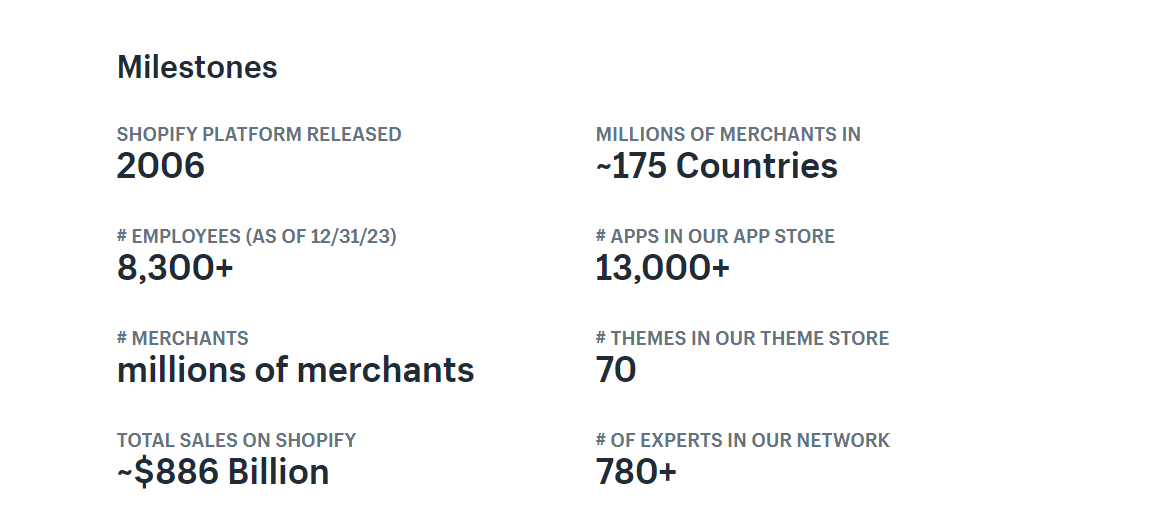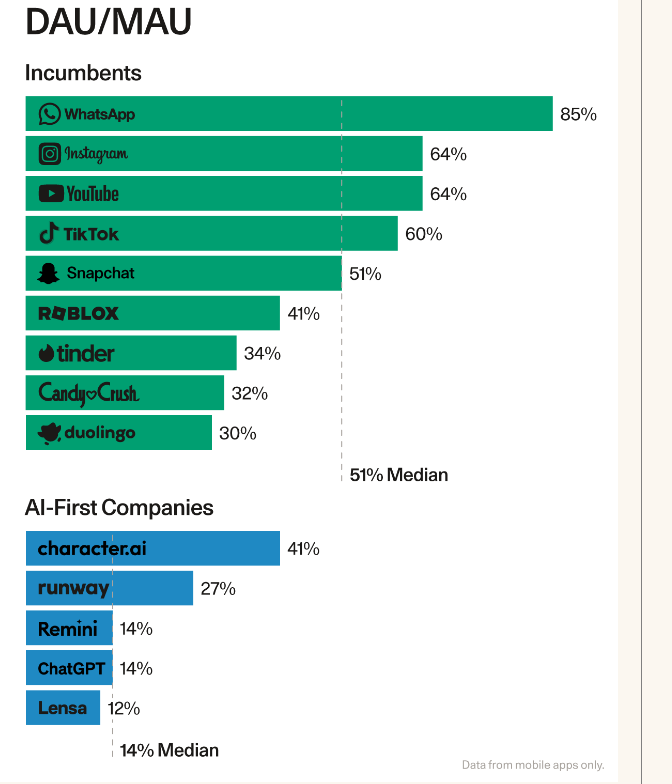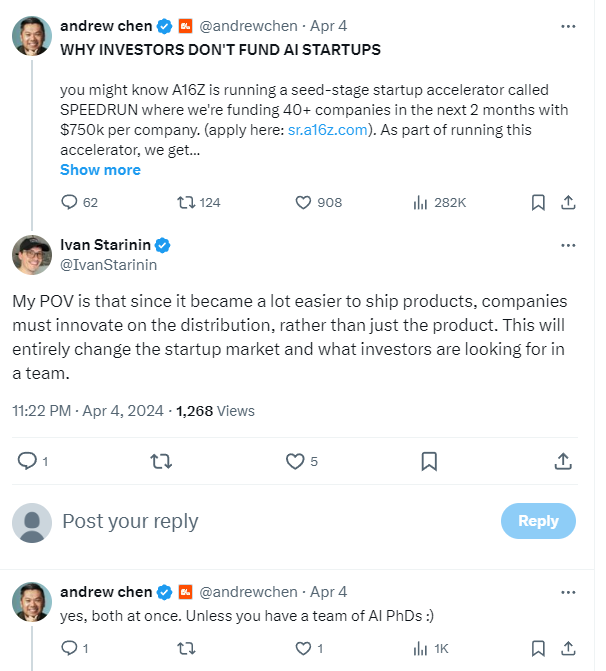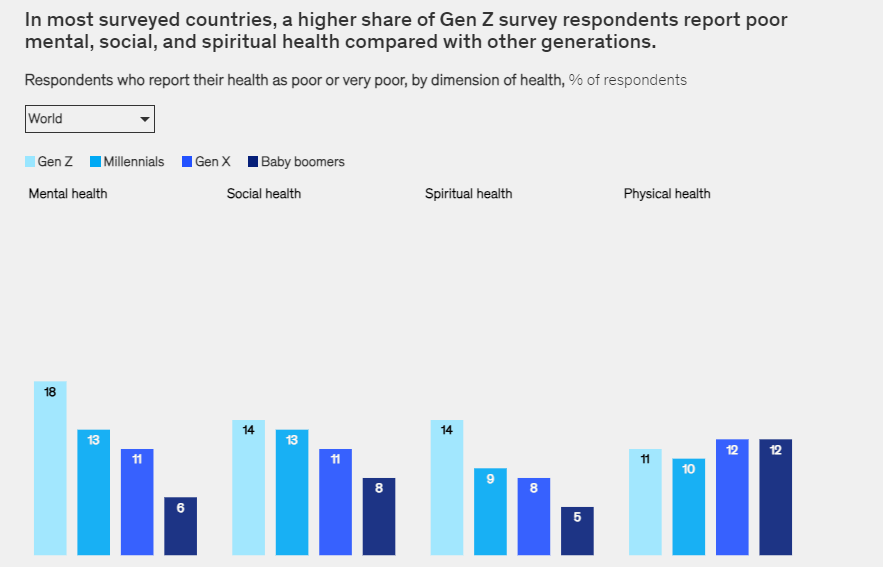It’s clear that AI is shaking things up far and wide, but to really get how it’s transforming jobs and entrepreneurship requires looking deeper a bit more. Running my own
And yes, the stakes are high: experts like those at Goldman Sachs are throwing around big numbers,
New markets opening
I recently watched
However, now serving millions of merchants, the platform proved them wrong as what it did by democratizing e-commerce redefined the market itself. Without needing to bother with code, businesses got to the point where they could set up their stores with just a few clicks. The barrier to entry wasn't just lowered; it became nearly non-existent. In the exact same way, AI mirrors the simplification Shopify brought to e-commerce.
However, despite the initial enthusiasm,
But it's not all somber in the world of AI — take the AI companionship scene, for example, particularly Character AI, which is performing exceptionally well with a DAU/MAU of 41%, comparable to popular apps like Duolingo and Tinder, which have user ratios of 30% and 34%, respectively. This makes one thing blindingly obvious – only the AI apps, which genuinely improve aspects of our day-to-day life so that living without them feels almost impossible, will succeed.
Easier path to product
Even with AI grabbing headlines, startups diving into this area often hit a wall when it comes to getting funded. And it's no surprise – for investors, discerning truly innovative AI solutions is becoming increasingly difficult. They often wait for the fog to clear on who's leading the market and which business models actually work before they decide where to put their money.
Andrew Chen of A16Z
Reflecting on the insights shared by Andrew Chen and drawing from my own observations, I
Future of work being unlocked
In my journey, which has spanned from founding startups to diving deep into AI, the evolution of digital interaction has been stark. We're monetizing digital interactions in ways that were unthinkable a few years ago, like selling digital art via NFTs.
However, contrary to early predictions, some applications of AI technology have not materialized as expected. Take prompt engineering, for instance. Prompt engineers have merged into wider team roles at tech firms, spinning captivating prompts that ensure websites stay engaging and miles ahead of rivals. As these strategies take center stage in digital campaigns, they’re not just pulling in massive website traffic; they're also turning that attention into solid profit.
Among other notable examples – by embracing AI influencers, we're touching base with something much larger and quite complex. There’s a wave of isolation among Gen Z—as outlined starkly in studies like
In response, AI influencers—ranging from whimsical shapes and animated humans to hyper-realistic CGI figures— have emerged as an increasingly popular AI trend intended to engage users in a controlled and positive manner. It's not just the landscape of marketing that's changing with these innovations. Watching habits shift among those who've grown up with technology really pushed me to focus on this area of AI. I kicked off
Closing thoughts
As we march ahead, the possibilities with AI don't just expand; they grow exponentially. It's not just the tech giants getting involved; businesses of every shape and size are being transformed by this technology. As an entrepreneur, I've noticed three key ways that AI has forever changed entrepreneurship:
- AI opens up unique business models that were simply not feasible before. For instance, my venture into AI companionship with Glamase revealed that people seek machines for company and social interactions. This is happening now, and it prompts us to continually ask, "What's next?"
- AI simplifies product launches because AI can be a product in itself. This fundamentally changes how investments are secured and redefines what constitutes a viable product.
- AI creates new jobs, but not in the way we expected. Instead of people doing the same jobs with AI enhancements, the job market is evolving in entirely new directions.
So, what's next? We must ask ourselves whether artificial intelligence will enable us to have stable incomes without traditional work hours. From my perspective, this seems increasingly plausible.
For me, the rise of AI is intertwined with the concept of universal basic income—a guaranteed minimum income for everyone, without any conditions. As appealing as it may sound, implementing UBI on a large scale currently raises questions about workers' motivation and potential negative social consequences. However, as we observe the market shifting towards AI with the simplification of various tasks, this change also becomes possible. So, id AI can already help people earn in various ways, why wouldn’t it lead to a future where individuals receive money directly from machine-generated work?
I believe this is possible, and my goal now is to harness artificial intelligence to create new ways for individuals to benefit, such as through AI influencers. However, this topic is much broader. With each step forward in our AI adventure, let's pledge to include everyone—ensuring that this tech revolution benefits all and opens doors to unprecedented opportunities.
Do you believe in this future?




